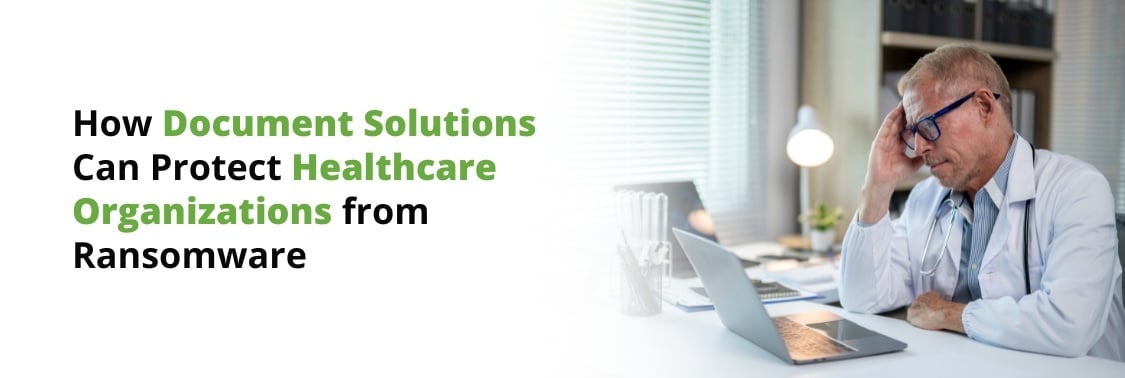
Navigating HIPAA compliance can be a daunting task for any healthcare organization. With strict regulations in place to protect patient information, it's easy to feel overwhelmed by the responsibilities involved.
Luckily, there's a tool that can make this process much smoother: the Document Management System (DMS).
Think of a DMS as your go-to resource for organizing, securing, and managing sensitive patient data, all while ensuring your organization meets those important HIPAA requirements.
If you are interested in taking advantage of a DMS to keep your team compliant, Green Office Partner is here to help.
We’ve worked with dozens of healthcare providers, ranging from regional organizations to national groups managing hundreds of clinics. We offer document management tools built for streamlining your operations while always staying on top of HIPAA laws.
In this article, we’ll explore how a document management system can transform your compliance efforts.
1. Secure Document Storage
HIPAA is all about protecting patient data, and a DMS excels in this area by providing secure, centralized storage for all your documents.
With advanced encryption, your documents are protected, both when they're stored and when they're being transmitted. Plus, you can control who has access to specific documents, ensuring that only authorized personnel can view or edit sensitive information.
This level of protection is crucial in preventing unauthorized access and data breaches, and can save your team from security-related catastrophe.
2. Access Control and Audit Trails
HIPAA compliance requires strict control over who can access Protected Health Information (PHI). Otherwise, unauthorized personnel can easily access confidential patient information, putting your organization at risk of lawsuits and irreversible damage to your reputation.
A DMS allows you to set up precise access controls, ensuring that only the right people have access to certain documents.
Additionally, most DMS platforms provide audit trail features that log every time a document is accessed or modified. This helps your staff maintain a clear record of who did what and when, which is invaluable during audits.
And should a security issue arise, a DMS’s record will help you investigate the source of the breach.
3. Automated Workflow Management
A DMS can automate many of the routine tasks associated with HIPAA compliance, such as document review and approval processes.
Automated workflows ensure that documents move through the correct channels without any delays or oversights. This both improves efficiency and ensures that every necessary step is followed, reducing the risk of non-compliance by mitigating opportunities for human error.
Plus, with automatic reminders and notifications, you can stay on top of high-priority tasks and deadlines.
4. Data Backup and Disaster Recovery
HIPAA requires healthcare organizations to have contingency plans in place to protect data in case of emergencies.
A DMS typically includes automated backup features that ensure all documents are regularly saved to the cloud and can be restored quickly if needed.
This capability is essential for maintaining access to PHI during unforeseen events, helping your organization recover swiftly while always being prepared for an audit.
5. Version Control
Tracking document updates is a critical piece of healthcare documentation, where referring to outdated information can lead to serious consequences.
A DMS with version control allows you to see all the changes made to a document and revert to previous versions if necessary. This feature ensures that your team is always working with the most current and accurate information, which is critical for both patient care and compliance.
6. Compliance Reporting
HIPAA compliance requires regular audits and reporting.
A DMS can generate detailed reports that provide a comprehensive overview of document access, modifications, and storage. These reports are essential for demonstrating compliance during audits and can save your team countless hours of manual processes.
By centralizing and automating this process, a DMS helps your team meet HIPAA requirements and avoid penalties.
7. Training and Policy Management
Ensuring that all staff members are up-to-date with HIPAA training and policies is another critical aspect of compliance.
A DMS can store and manage all training materials, making them easily accessible to your team. It can also track who has completed required training and send reminders when it's time for an update.
This ensures that everyone in your organization is informed and compliant, reducing the risk of accidental breaches.
Green Office Partner and HIPAA Compliance
HIPAA compliance doesn't have to be overwhelming. With the right Document Management System, you can streamline your processes, enhance security, and ensure that your organization is always in compliance.
From secure storage and access control to automated workflows and compliance reporting, a DMS provides the tools you need to protect patient information and meet regulatory requirements with confidence.
If you are interested in taking advantage of the many benefits offered by a document management system, Green Office Partner can help.
With experienced professionals at the ready, we can install and implement a DMS that meets all of your industry requirements and train your team to use it in no time.
Contact us to get started today.

.png)





-1.jpg)

